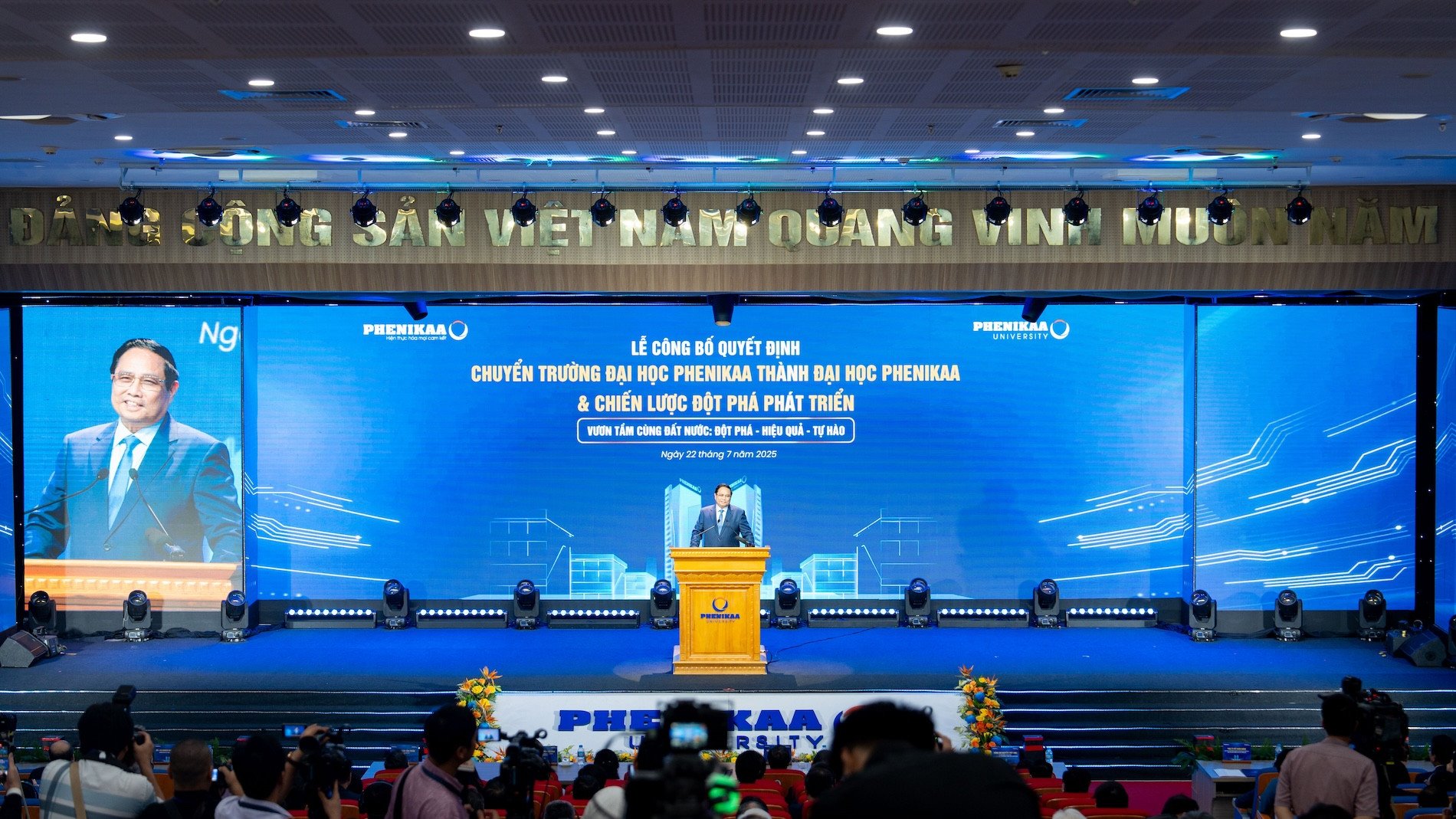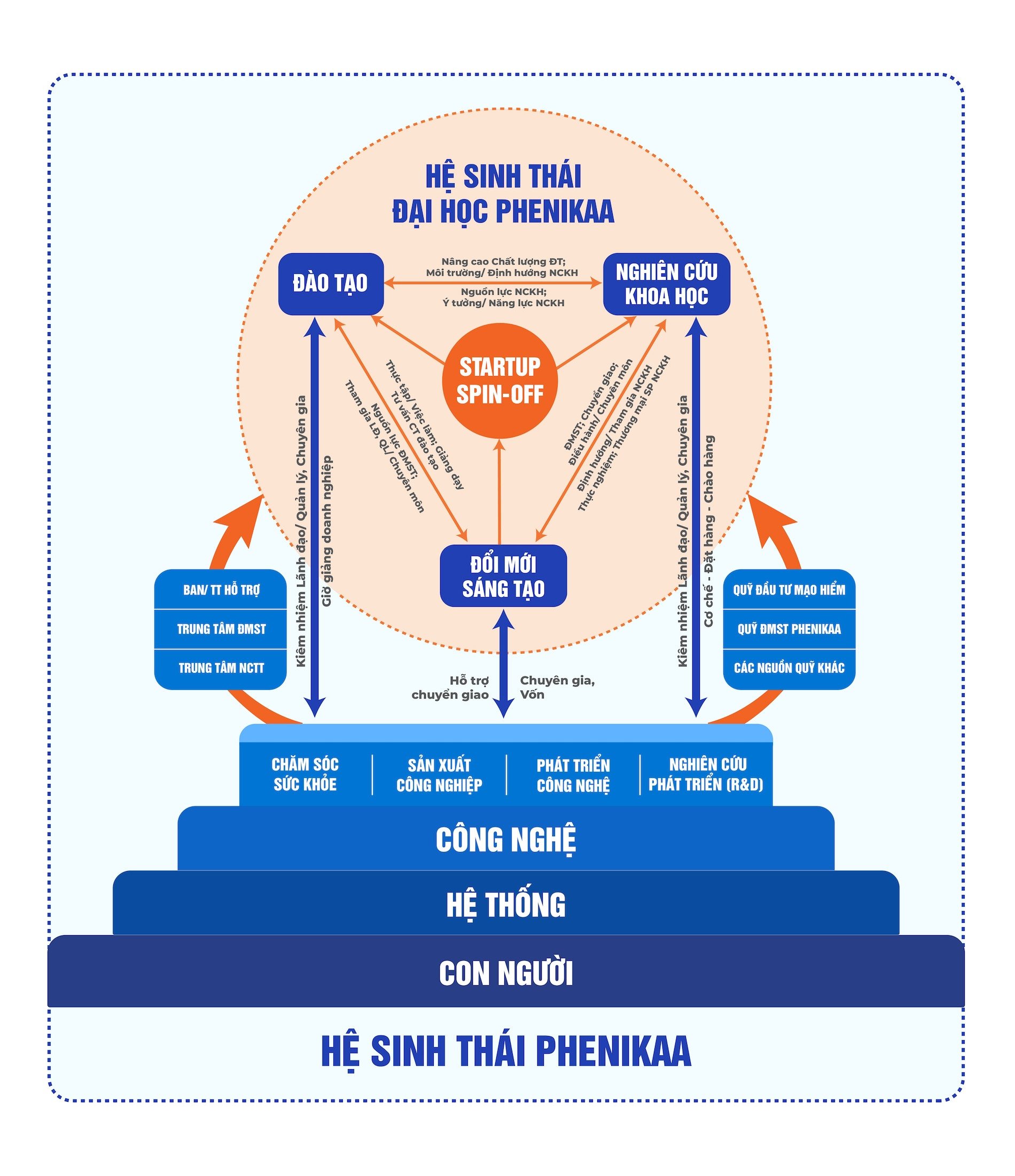University - Enterprise model, "incubator" of global startups
In 1995, at Stanford University, Sergey Brin and Larry Page met and developed BackRub - a search engine using the PageRank algorithm - the "heart" of Google. From a university project, Google has become a multinational corporation with a brand value of 944.1 billion USD by 2025 - second in the world after Apple.
Google is just one of many businesses that have successfully commercialized research projects in universities. In developed countries, the knowledge-based university model, in which training - scientific research - innovation are equally focused, is playing a role in promoting startups, especially in technology. In the US, Stanford, MIT, Harvard or UC Berkeley... are the incubators of thousands of global technology startups. MIT alone, each year, has hundreds of inventions, dozens of spin-off companies born, creating "giants" such as Dropbox, Bose, Biogen..., statistics in 2024, the school has 679 inventions and 24 startups established. Similarly in Europe, Cambridge University (UK) with the "Cambridge Cluster" model - a community of > 5,000 high-tech companies, creating tens of thousands of jobs and a value of tens of billions of pounds/year. In Asia, NUS is also a pioneer in building an innovation ecosystem, contributing to the formation of 40-50 new companies/year.
Universities operating with a knowledge enterprise model not only impart academic knowledge, but also serve as a cradle for developing scientific research and innovation, contributing to promoting national growth, changing the world and inspiring global entrepreneurship.
Phenikaa University - a breakthrough in management with the integrated model of University - Enterprise
At the ceremony announcing the decision to convert Phenikaa University into Phenikaa University on July 22, 2025, Prime Minister Pham Minh Chinh affirmed: "Talents are the national spirit". Enlightened knowledge makes the nation develop. Innovation brings the country to develop quickly and sustainably. These are important factors that bring our country into the "Era of growth", rich, strong, civilized, prosperous".

Receiving the Prime Minister 's decision, Phenikaa University officially operates according to the Knowledge Enterprise Model, integrating University - Enterprise, closely linked with the Group Ecosystem, towards a comprehensive innovative university, creating breakthrough values in scientific research and innovation, contributing to increasing value in all aspects with the spirit of humanity and service.
Phenikaa University model focuses on 3 important highlights
1. Flexible and effective mechanism to promote innovation
The university-enterprise model allows Phenikaa to build a long-term development strategy and resource planning, aiming at sustainable human resource initiative. The University creates a mechanism for decentralization, quick, effective and proactive decision-making; in particular, it creates conditions for intellectual property owners to be the main business entities of their ideas on the principle of "harmonized benefits, shared risks". The leaders, managers, lecturers and scientists of the University are allowed to concurrently hold leadership, management, consulting and professional positions at enterprises (inside and outside the Group) and vice versa.
2. Golden triangle of mutual support: Training - Scientific research - Innovation
Phenikaa University Ecosystem is part of the Group Ecosystem, performing three core tasks with equal roles, organically connected:
- Training: providing high quality human resources and creative ideas;
- Scientific research: creating new knowledge expressed through international publications, patents, and useful solutions;
- Innovation: transforming knowledge into commercial and business solutions.
These three tasks are closely linked to the Group's four pillars: Industry, Technology, Healthcare, Education and Training, making the most of resources and promoting the strengths of the multi-industry ecosystem.

3. Management according to the knowledge enterprise model
Regarding the organizational structure, under the University Council will be the Board of Directors, the Director in charge of the academic sector and the Director of Innovation. In which, the Innovation sector operates as a business supporting startups, transferring, doing business, incubating and sponsoring startups/spin-offs with resource support from the Group's centers/funds. This model promotes Phenikaa University to realize its strategic goals: Increasing revenue from innovation activities, accounting for 50% (by 2030) and 70% (by 2035) of the total revenue of the University; 2+ startups/spin-offs with capitalization >100 million USD (by 2030) and 4+ startups/spin-offs with capitalization >200 million USD (by 2035). The school currently has 09 spin-off/startup companies, some of which are calling for international capital, of which Phenikaa-X has been valued at 105 million USD and is negotiating a capital contribution contract.
Phenikaa University chooses the University - Enterprise integration model as one of the strategic breakthroughs to realize the aspiration to serve, the mission of practical training, imparting and developing knowledge comprehensively. The school believes that more and more talents will choose to stick with and contribute to Phenikaa, accompanying the training and development of a young generation of Vietnamese people who are brave, creative and integrated, contributing to building a prosperous, happy and sustainable Vietnam.
Bich Dao
Source: https://vietnamnet.vn/phenikaa-university-dot-pha-mo-hinh-quan-tri-tich-hop-dai-hoc-doanh-nghiep-2428838.html




![[Photo] Prime Minister Pham Minh Chinh chairs the first meeting of the Central Steering Committee on housing policy and real estate market](https://vphoto.vietnam.vn/thumb/1200x675/vietnam/resource/IMAGE/2025/9/22/c0f42b88c6284975b4bcfcf5b17656e7)
































![[Photo] General Secretary To Lam presents the First Class Labor Medal to the Vietnam National Energy and Industry Group](https://vphoto.vietnam.vn/thumb/1200x675/vietnam/resource/IMAGE/2025/9/21/0ad2d50e1c274a55a3736500c5f262e5)






























































Comment (0)